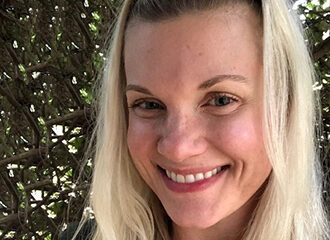By: Monica Perez, MA, Primary Therapist at The Renfrew Center of Boston
An eating disorder can be incredibly challenging to battle, but even more so alone. What we know about human beings is we are hardwired for connection. We seek each other out for comfort, joy and understanding. However, when an eating disorder joins the relationship, the connection can suffer. We often see when people try to suppress their distressing emotions through an eating disorder, they also tend to suppress their communication and connections.
At The Renfrew Center, we take a relational cultural theory approach to healing and growing through the recovery process. We discuss and leave space for the nuances of how important navigating disconnections in relationships can be.
When navigating a disconnection in a relationship, however, we know it is much easier said than done! Often we discuss the idea of “the art of prefacing.” The art of prefacing, similar to a relational check-in, allows space for each person in the relationship to name their antecedents or whatever else might be helpful for the other person to know when engaging in current or future interactions. The art of prefacing takes away possible guessing for why a person is presenting in a certain way and offers clarity to a situation.
By naming what you are bringing into a situation, it allows for the other person to take perspective and hold it along with their own experience. This can be an incredibly helpful approach when starting to lean into disconnections in your relationship!
To help move through disconnections, while using the art of prefacing, it might sound like, “Hey, I’ve had a really hard day, that might make it seem as though I’m disinterested or distracted or even short-fused, and I want you to know that I’m trying to anchor in and be here for our conversation.” This might prevent the person you’re talking with from having their own automatic appraisals, or automatic interpretations, about why you’re acting short with them.
The next time you notice struggling with something challenging, and it has the potential to impact your connections, try the art of prefacing. Choose a close friend or family member and see how it can create a growth-fostering reconnection!
Monica Perez, MA is a Primary Therapist at The Renfrew Center of Massachusetts in Boston, MA. Monica joined Renfrew in 2018, during her graduate school year-long internship. Soon after graduation, Monica came on as a full time employee in 2019. Monica received her undergraduate degree from the University of Central Florida in Orlando, FL, and her Master’s in Mental Health Counseling and Behavioral Medicine from Boston University. Monica’s passion for the work has grown from her time as an intern in the direction of relational culture theory, Multi Family Group and leading a weekly Spanish-speaking Support Person’s Service group.



